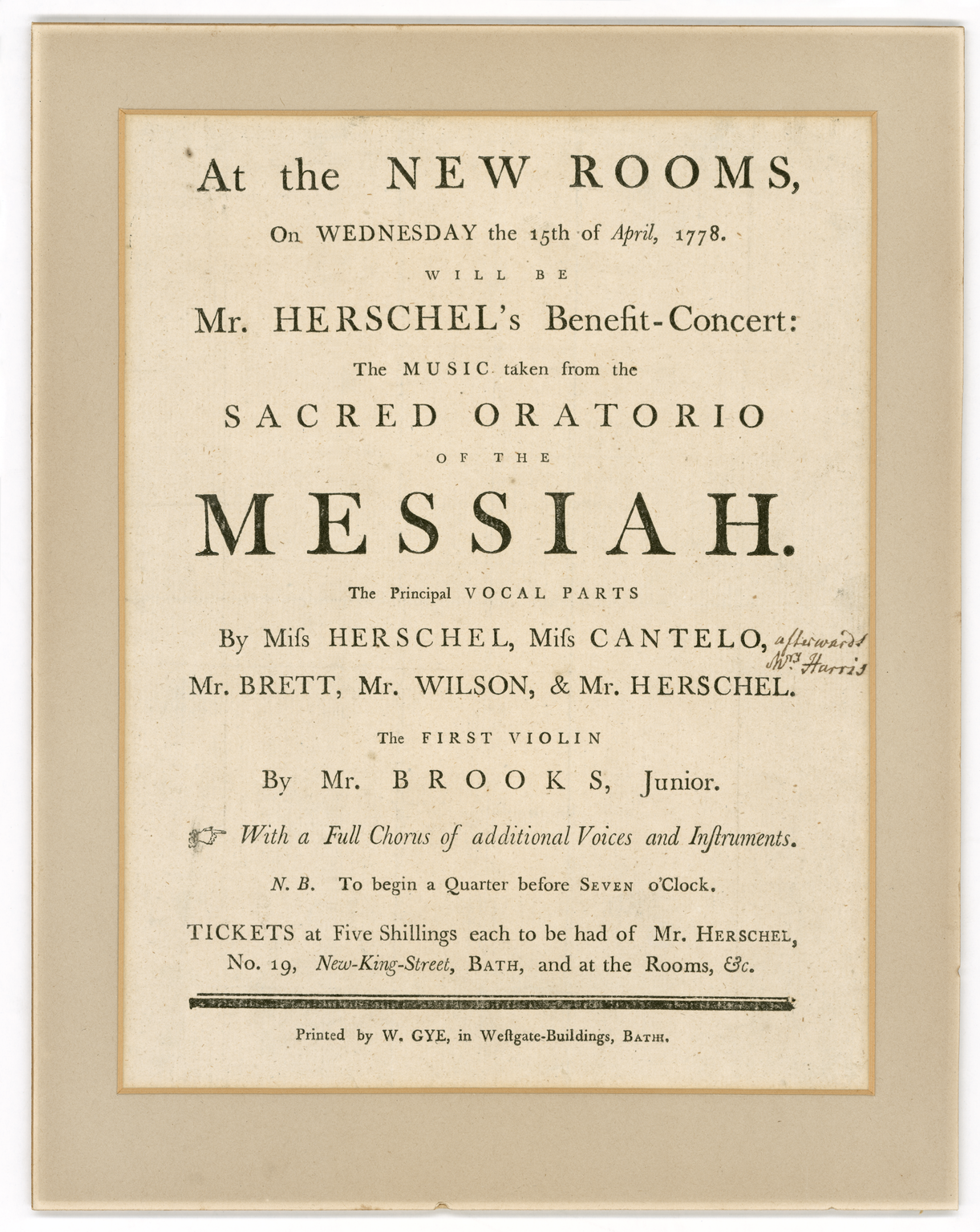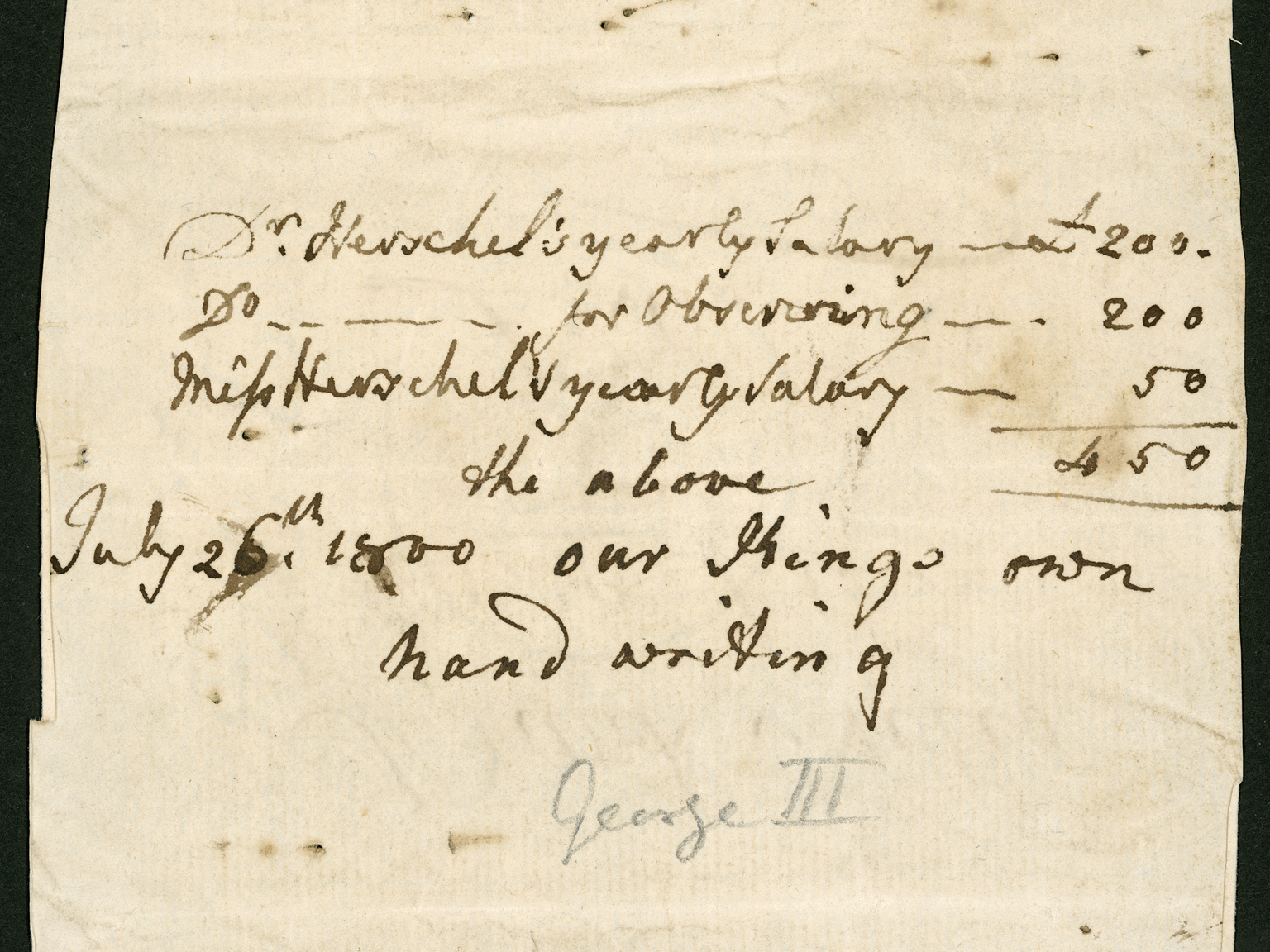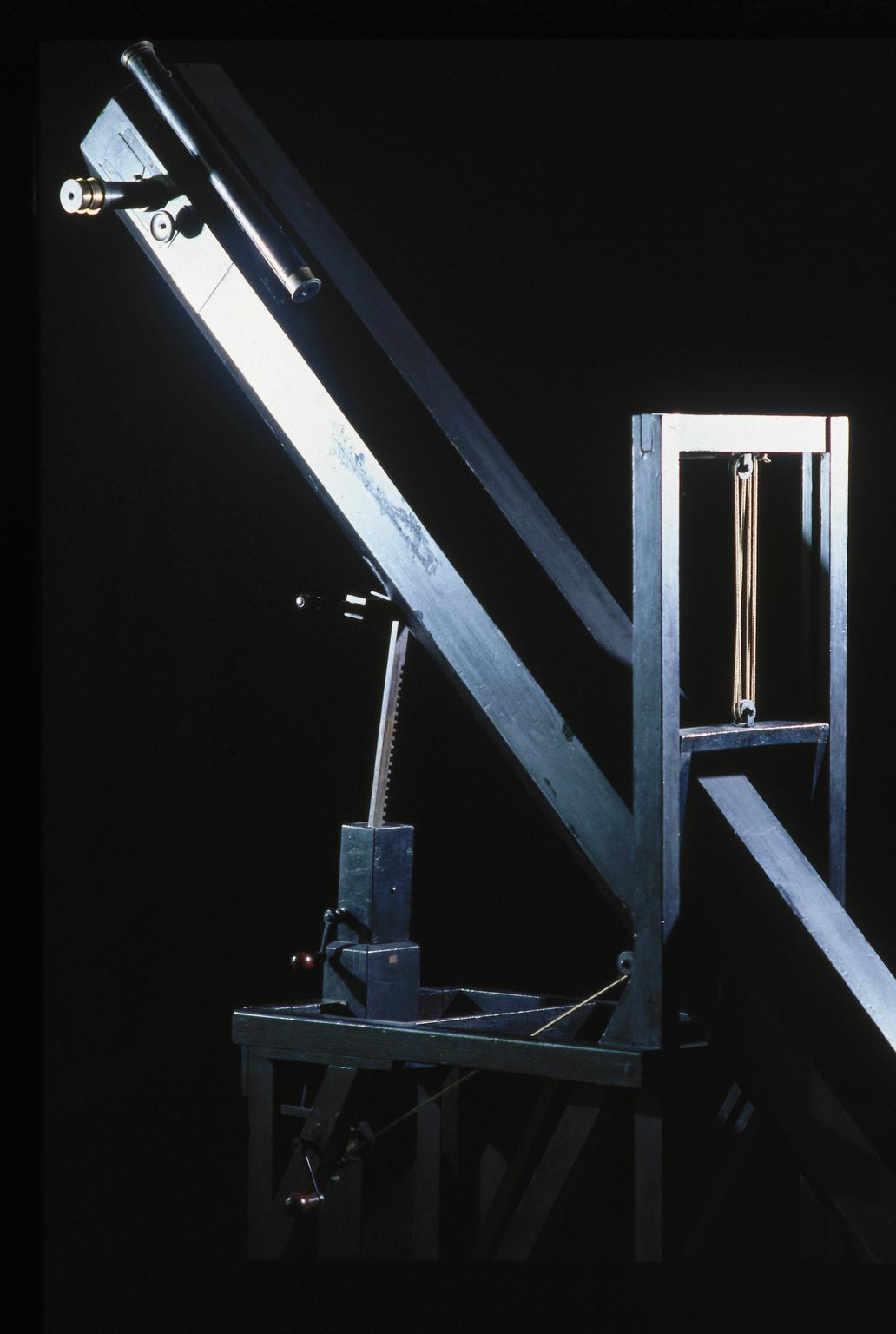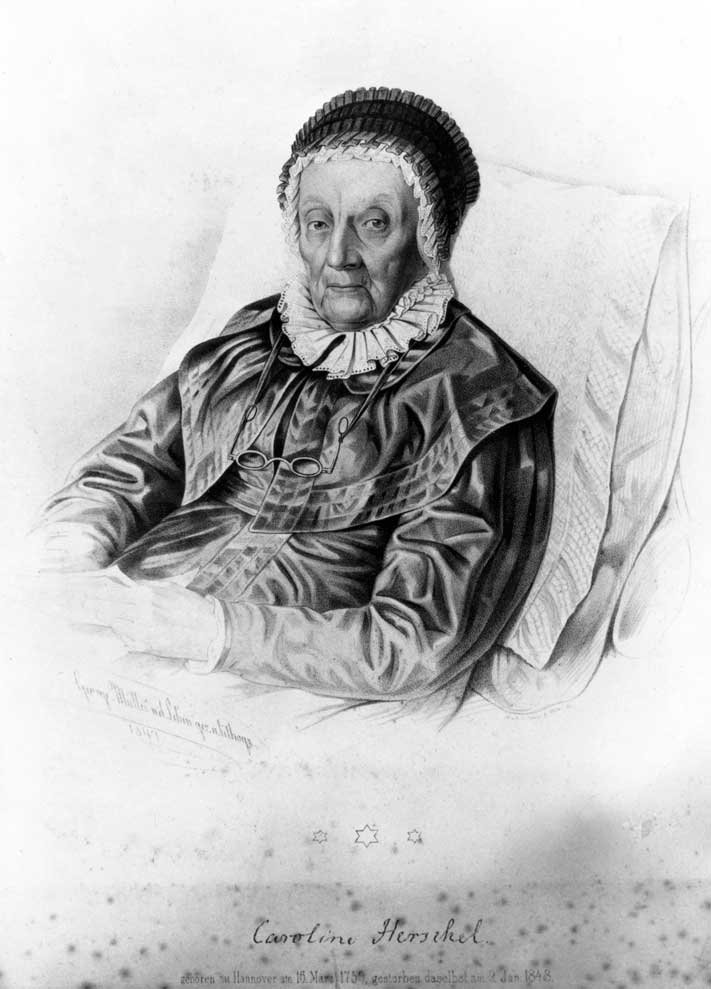Although often overshadowed by her brother William, Caroline Herschel‘s contribution to astronomy was immense.
In 1772, Caroline escaped a life of domestic servitude in Hanover to join her brother in Bath. William had forged a successful musical career and needed someone to keep house. Caroline, with her fine soprano voice, joined him in many performances.

However, she soon discovered that what William really wanted was someone to indulge his passion for astronomy. ‘Almost every room turned into a workshop’, she noted, as their house bore the marks of William’s telescope-building.
William’s perfectionism paid off with the discovery of Uranus in 1781, and he was appointed King’s Astronomer to George III. Caroline received a salary as his assistant, making her the first professional female astronomer.

The Herschels moved to Slough, near the King at Windsor. Caroline had mixed feelings about this, as it meant giving up her musical career. But she threw herself into astronomical work. As well as assisting William, she discovered several comets and compiled catalogues of stars and nebulae.

Caroline also left an important legacy for historians of science. Her memoirs give an insight into the work of the Herschels and their counterparts, and also tell a lively human story.
She describes having to force morsels of food into William’s mouth while he obsessively polished telescope mirrors for hours on end, and recounts a painful incident where she became impaled on the 40ft telescope.
If you want to find out more about Caroline I heartily recommend The Age of Wonder by Richard Holmes, or her own words in the autobiographies, edited by Michael Hoskin.
Or you could visit the Herschels’ house in Bath, now a wonderful museum.


See Caroline Herschel’s Newtonian Reflecting Telescope on display in our Making The Modern World Gallery.
One comment on “Sweet Caroline”
Comments are closed.
Fascinating, I had never heard of her before.